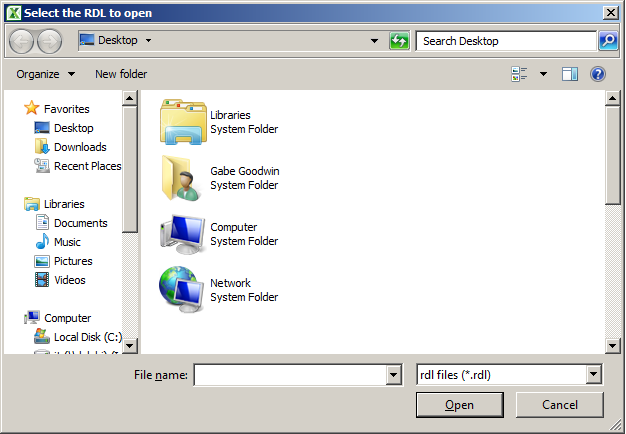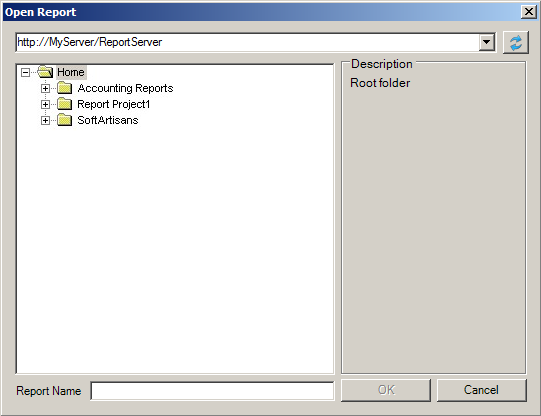...
| Info | ||
|---|---|---|
| ||
For more information on installing and configuring OfficeWriter Reporting Services Integration, see Installation or contact your System Administrator. |
OfficeWriter Designer.NET Toolbar
The control center for creating reports with OfficeWriter is the OfficeWriter Designer.NET toolbar. When you open Excel, you will the OfficeWriter Designer.NET tab in the ribbon.
...
- Make sure that you ran the installer for the OfficeWriter Designer.NET, which is a separate installer from OfficeWriter.
- If you do not see the toolbar after running the installer, the toolbar may have been disabled. Please see this Knowledge Base article for more information.
Opening a Report File
An RDL file is an xml-based report definition file. In this tutorial we will assume the RDL was created in Visual Studio or Report Builder.
- Open Microsoft Excel
- Go to the OfficeWriter Designer.NET tab and click Open.
- If your report definition file was saved on a local or network drive, choose Open From Disk from the drop down.

- If your RDL file was deployed to Reporting services, choose Open From Server.
In the Report Browser dialog box, type in your report server's URL or Domain name and click Refresh. This will load all the available report folders into the list box. Navigate to your report file, select it, and click Ok.
Adding Fields to Your Report
When you open the report, the Designer.NET parses the RDL for information about the data sets and makes that information available while you are working in Excel. Data sets will appear in a drop-down list and you will be able to insert fields from those data sets into the Excel template as data placeholders called data markers.
...
Your finished report template should look like this:

Publish and View Your Report
Before publishing the report on the Reporting Services server, we must save the Excel template locally as an RDL file.
...
- Open a browser and go to the Reporting Services Report Manager (usually installed at http://<server address>/Reports).
- Navigate to where you published your report.
- Select the report. Reporting Sevices will display the report but only show you the data set.
- From the export option drop-down, choose Excel designed by OfficeWriter.
- When prompted, click Open . Excel will open and display your report the way you created it.
Samples
RDL: Excel-QuickStartRDL2008R2.rdl
| Note |
|---|
If you are using the VBA Designer see Create an Excel Report from an Existing RDL using VBA Designer |